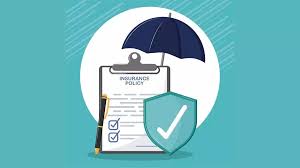Exploring the Extent of Your Insurance Protection: Beyond Basics
When it comes to insurance, understanding the full extent of your protection goes beyond grasping the basics. Delving deeper into your coverage can unveil crucial insights that may significantly impact your financial security. Here’s a comprehensive guide to exploring the depth of your insurance protection:
1. Unraveling Policy Details
Begin by unraveling the intricacies of your insurance policy. Dive into the fine print to uncover nuances in coverage, exclusions, and limitations. Understanding these details empowers you to make informed decisions regarding your protection.
2. Evaluating Coverage Adequacy
Assess the adequacy of your current coverage in mitigating potential risks. Consider factors such as your assets, liabilities, and lifestyle to determine whether your policy provides sufficient protection. Adjustments may be necessary to align your coverage with your evolving needs.
3. Identifying Coverage Gaps
Identify any gaps or vulnerabilities in your insurance coverage. Conduct a thorough review of your policy to pinpoint areas where additional protection may be warranted. Addressing these gaps proactively can prevent financial setbacks in the event of unforeseen circumstances.
4. Maximizing Policy Benefits
Explore ways to maximize the benefits offered by your insurance policy. Take advantage of available discounts, incentives, and bundled packages to optimize your coverage while minimizing costs. Engage with your insurance provider to explore options for enhancing your policy benefits.
5. Leveraging Additional Resources
Tap into additional resources and tools provided by your insurance company. Utilize online portals, mobile apps, and customer support services to streamline policy management and access valuable information. Staying informed and proactive is key to maximizing the value of your insurance coverage.
6. Understanding Policy Exclusions
Gain clarity on policy exclusions and limitations that may impact your coverage. Familiarize yourself with scenarios or circumstances that may not be covered by your insurance policy. Being aware of these exclusions allows you to take proactive measures to mitigate associated risks.
7. Reviewing Policy Renewal Terms
Stay vigilant when reviewing policy renewal terms. Take note of any changes or adjustments made to your coverage and premiums. Assess whether these modifications align with your needs and objectives, and consider exploring alternative options if necessary.
8. Seeking Professional Advice
Consider seeking advice from insurance professionals or financial advisors. Their expertise can provide valuable insights and recommendations tailored to your specific circumstances. Consulting with experts can help you make informed decisions regarding your insurance protection.
9. Conducting Regular Policy Reviews
Commit to conducting regular reviews of your insurance policy. Life changes, and so do your insurance needs. Periodically assess your coverage to ensure it remains relevant and adequate. Update your policy as needed to reflect any significant life events or changes in your financial situation.
10. Investing in Continuous Learning
Stay proactive in your quest for insurance knowledge. Continuously educate yourself on industry trends, policy updates, and best practices for optimizing coverage. By investing in continuous learning, you empower yourself to make informed decisions and maximize the value of your insurance protection.
Exploring the extent of your insurance protection goes beyond the basics. By delving deeper into your coverage, identifying potential gaps, and maximizing policy benefits, you can enhance your financial security and peace of mind. Stay informed, proactive, and engaged in managing your insurance protection to ensure it meets your needs both now and in the future.
